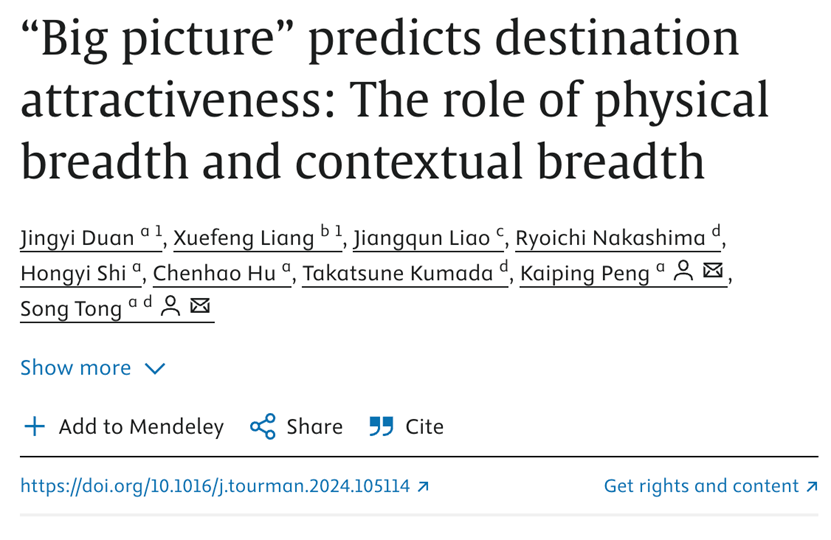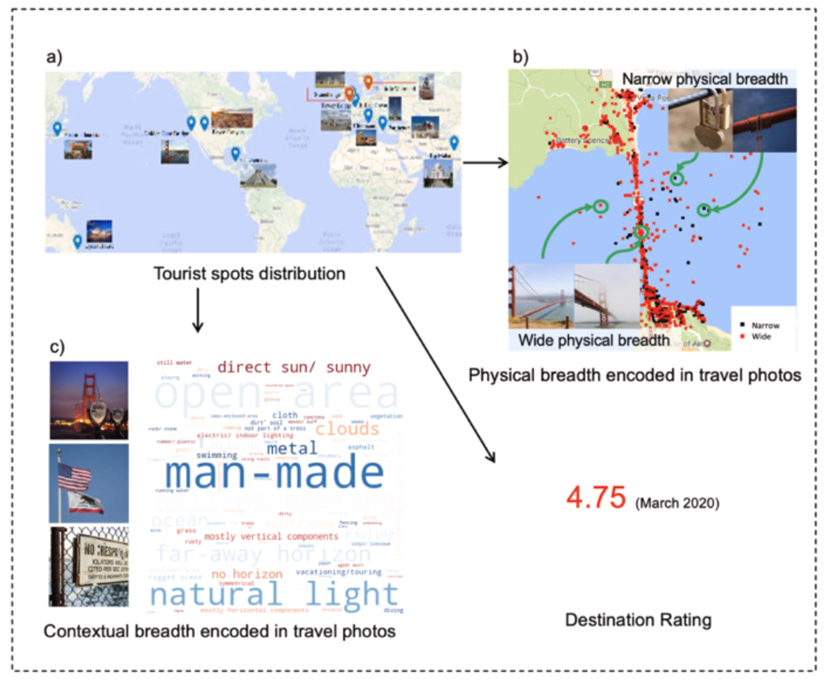
Recently, Professor Peng Kaiping's research group from the Department of Psychology at Tsinghua University published a research paper titled "Big picture predicts destination attractiveness: The role of physical breadth and contextual breadth" in Tourism Management (CAS Category 1, Impact Factor 12.8), one of the top journals in management studies. Based on one of the classic theories in positive psychology—the broaden-and-build theory—this paper proposes the potential of "seeing the big picture" in predicting destination attractiveness across different scenarios and countries, and gradually validates it through three large-scale tourism visual data studies. The first author of the paper is Duan Jingyi, a 2022 doctoral student in our department, with Professor Peng Kaiping and Postdoctoral Fellow Tong Song as corresponding authors.
Famous destinations around the world provide humans with rich, diverse, and distinctly styled visual feasts. However, behind these diverse landscapes, do universal visual languages exist that can transcend culture and context to bring positive experiences to tourists? Addressing this question, this study uses the cross-cultural metaphor of "seeing the big picture" as an entry point. Based on the broaden-and-build theory, it proposes a two-dimensional visual breadth model, including physical breadth (indicating the degree of visual openness) and contextual breadth (indicating the richness of visual semantics). The research team used a self-developed deep neural network (ACNN) to analyze 588,821 photographs from 120 global tourism destinations. Results show that the physical breadth and contextual breadth of destinations can consistently and positively predict their attractiveness. Destinations that provide tourists with these two types of "big-picture experience" are more likely to receive higher ratings.
This study introduces a classic theory from positive psychology into everyday tourism scenarios and adds a cognitive interactive perspective to tourism research through artificial intelligence algorithms, providing a novel cross-scenario analytical framework for tourism management (such as tourism resource development). Meanwhile, the research also extends the discussion scope of the broaden-and-build theory, offering valuable insights and references for exploring positive psychology theories in more practical contexts in the future.
Research model framework:

This research was supported by the Tsinghua University Shuimu Scholar Project (No. 2021SM157) and the National Postdoctoral International Exchange Program (No. YJ20210266), as well as funding from the Tsinghua University Global Industrial Research Institute (No. 202-296-001, 2021-11-09-LXHT005-01).
Paper link: https://www.sciencedirect.com/science/article/abs/pii/S0261517724002334
Duan, J., Liang, X., Liao, J., Nakashima, R., Shi, H., Hu, C., Kumada, T., Peng, K., & Tong, S. (2025). "Big picture" predicts destination attractiveness: The role of physical breadth and contextual breadth. Tourism Management, 108, 105114. https://doi.org/10.1016/j.tourman.2024.105114

